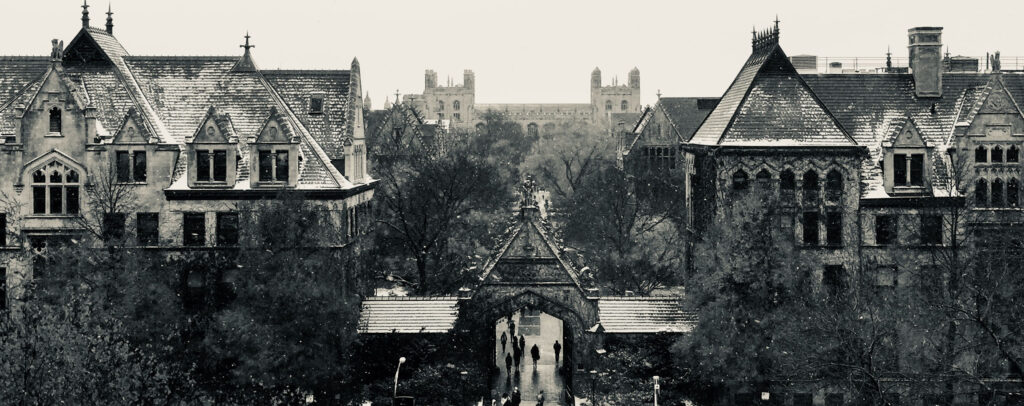
Through the Prism of an Intellectual Life: Thinking through conversation in the ruins of empire
University of Chicago, Winter 2023, Spring 2024
PLSC 20928 / CCCT 20928 / CRES 26511 / PARR 20928 / FNDL 20928
What is the place of conversation in political thought? What makes such conversations generative or fulfilling? What role do conversations about politics play in connecting our present to the past and in helping us to reimagine our futures? These are some of the questions that this course hopes to explore by following along the threads of a conversation that has united the aims, hopes, and disappointments of three generations of anti-colonial thinkers in the Afro-Atlantic world. Taking the intellectual life of the Jamaican-British social theorist, Stuart Hall, as an exemplary site for this investigation, students will engage with a variety of sources—recordings, interview transcripts, memoirs, scholarship, and political writings—in an effort to piece together one strand of conversation out of which Hall’s intellectual life took shape and through which he in turn shaped the intellectual lives of others. Of particular interest here is the intergenerational character of these conversations. Students will be encouraged to explore how people are shaped by intergenerational preoccupations and concerns, even as they come to take up these preoccupations in new ways that often mark a break from the past. Together, we will also examine how, in narrating their own preoccupations and intellectual lives to themselves, people lay claim to particular pasts and sketch out hoped-for futures.
Utopia’s Eclipse? The Horizon of Political Hope in the Wake of Empire and Revolution
University of Chicago, Winter 2021, Winter 2022
PLSC 22205 / LLSO 22205 / CRES 23205
The twentieth century was a time of extraordinary political hope associated with socialist and anti-colonial struggles that promised to usher in new forms of human freedom. However, by the 1980s, this hope had given way to catastrophe as the horizons of political possibility and revolutionary aspiration characterizing these struggles collapsed. How do we reckon with this collapse, and what does it mean to make a life for oneself in the wake of these failed emancipatory projects?
This course seeks to explore this question by examining the place of utopian thinking, broadly understood, in the projects of anticolonial and socialist struggle in the twentieth century and by reading this strain of thought in light of the doubts that certain thinkers have raised about the possibility of attaining utopia’s promise. Taking as a starting point the idea that utopian thinking—at least in its modern, universalistic form—has always existed in a complex relationship to the figure of the “savage Other” and the project of Western imperialism, the first half of the course will invite students to test this claim against the aspirations advanced by certain anti-colonial and left revolutionaries. In the second half of the course, we will turn to contemporary debates about the possibilities of renewed utopian thinking in the present. In particular, we will examine some important recent reflections on the postcolonial predicament to consider what we might learn from the revolutionary failures of the twentieth century and what critical resources this history has yielded to us.
Empire and Colonialism in the Modern World
Harvard University, Spring 2016-2019
SOC STD 98PL
This tutorial will expose students to the scholarship on modern empire from across the fields of anthropology, history, law, and political science. Students will be asked to consider the differences and commonalities in empires across space and time. They will also explore how relations of empire and colonialism were constituted through structures of law and of economic relations, as well as how notions of race and culture were shaped by imperial encounters. Finally, the readings for this tutorial will introduce students to a range of methodological approaches to the study of empire, and will invite them to consider the strengths and weaknesses of these different approaches.